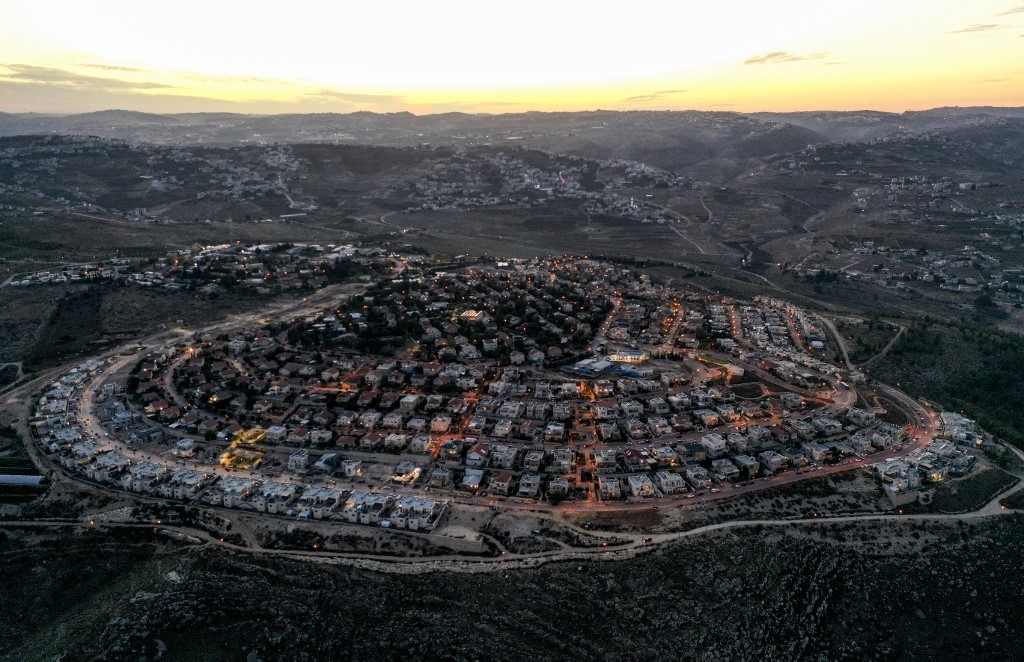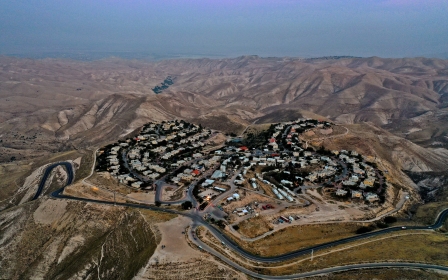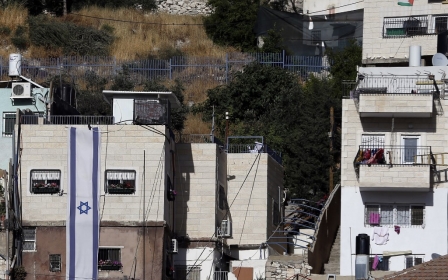Jewish National Fund approves land grab plan in West Bank to expand settlements

The Jewish National Fund has approved a controversial plan that will allow it to buy Palestinian lands in the West Bank for the expansion of illegal settlements, one step away from making official a practice that has been carried out under the table for decades.
The group, known in Hebrew as Keren Kayemet Le Israel (KKL), approved the plan on Sunday by one vote - six in favour and five against - and still needs to pass a final approval from its board of directors on 22 April, Haaretz reported.
The new plan will allow KKL-JNF to buy lands in the Palestinian district of Jenin and Nablus, in the northern West Bank, an area surrounded by Israeli settlements.
The chairman of KKL-JNF, Avraham Duvdevani, is proposing a plan next Sunday that will apply the new policy of buying land in the West Bank retroactively to deals and past purchases.
The legitimisation of land grab
New MEE newsletter: Jerusalem Dispatch
Sign up to get the latest insights and analysis on Israel-Palestine, alongside Turkey Unpacked and other MEE newsletters
The KKL-JNF is a non-profit organisation founded in 1901 to buy and develop land in Ottoman and Mandatory Palestine for Jewish settlers.
The goal was part of the bigger plan named “land redemption”. Jews in Israel and worldwide have for decades been encouraged to give to the project, often in the form of donations collected in the KKL’s famous blue boxes.
'Buying land to expand West Bank settlements is antithetical to Israel’s future as a democracy, and only serves to entrench occupation and to make the lives of Israelis and Palestinians on both sides of the Green Line less safe'
- The Progressive Israel Network
After the 1967 war, KKL was given written instruction from the then-prime minister Levi Eshkol to start acquiring land in the West Bank. But most of these activities were conducted in secrecy to avoid collision with donors or political friction.
Today KKL-JNF owns 13 percent of the land in Israel.
In February, KKL-JNF set a dramatic change in its policy that officially authorised the purchase of Palestinian land in the West Bank and accelerated illegal settlement building, approving the allocation of $11.58 million for the matter.
Since 2017, KKL-JNF bought lands in the West Bank worth $30m through the Himnuta Yerushalem company. The money was sourced from KKL-JNF’s budget dedicated to buying lands “in “Jerusalem and the periphery,” according to Haaretz.
Some members of KKL-JNF have called to limit the organisation's activity in the West Bank “to promote forestation and community and educational projects".
Rabbi Gilad Kariv of the Israeli Labor Party said that KKL-JNF’s new policy has “political, diplomatic and security implications” and considered it as a “dangerous manoeuvre” that lacks the consultation of defence and foreign policy experts.
Wary allies
The new policy has been condemned by the liberal diaspora. The Progressive Israel Network (PIN), a coalition of 10 Jewish organisations in the US, has called for the new policy to be voted against on 22 April.
“The vast majority of American Jews want to be part of building a state of Israel that respects its neighbors, upholds democracy, and seeks peace,” the PIN said in a statement published on Monday.
“Buying land to expand West Bank settlements is antithetical to Israel’s future as a democracy, and only serves to entrench occupation and to make the lives of Israelis and Palestinians on both sides of the Green Line less safe.”
Washington has also expressed its dismay with KKL-JNF's move. Ned Price, the US State Department spokesperson, told reporters in February: “We believe it is critical to refrain from unilateral steps that exacerbate tensions and that undercut efforts to advance a negotiated two-state solution.”
Middle East Eye delivers independent and unrivalled coverage and analysis of the Middle East, North Africa and beyond. To learn more about republishing this content and the associated fees, please fill out this form. More about MEE can be found here.




